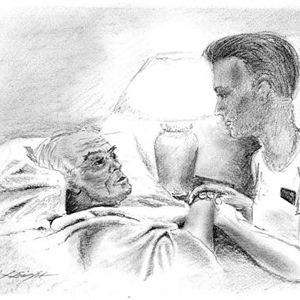
What to Expect: The Physical and Emotional Symptoms of the Dying Patient
DescriptionThis is a self-paced course with optional knowledge check quizzes after each lesson. These non-graded quizzes allow you to check your understanding of the lesson objectives before proceeding to the next lesson. After the final lesson you will be required to take the final exam. You must score 70% or higher to pass the course and obtain a certificate of completion.
- Identify the participants personal fears associated with caring for a dying patient
- Identify the needs of the dying patient and their family
- Describe the measures needed to offer support for the patient and /or family
- Identify the possible emotional symptoms and concerns of the dying patient
- Describe the signs and symptoms of pain, agitation, confusion, and fatigue that are troublesome to the patient and family in the disease process
- Outline the changes in body functions related to the heart, lungs, kidney, bowel, and brain as death approaches
- Outline the predictable sequence of events of dying
- Describe ways in which you may provide comfort and care to a dying patient and family through communication and your acts of kindness
- List the responsibilities and priorities following death
2.5 Contact Hour: Based on 60 minute contact hour
The estimated time for completion for this activity is 2.5 hour(s).
This course is designed to meet the continuing education requirements of healthcare paraprofessionals, such as homehealth aide, nurses aide and personal care attendants.
Lores Vlaminck - RN BSN MA Technical Nurse Consultant Lores Consulting
Lores received both her Bachelors of Science Degree in Nursing and her Master's in Nursing Education from Bethel University, St. Paul, MN. Lores has a varied background of healthcare experience to include acute and critical care, clinical nurse specialist, and most recently, 19 years of experience as the founder and director of a rural home care and hospice agency.
Lores' passion is education for health care professionals, para-professionals, volunteers, and the community at large in the specialty of end-of-life care. Lores offers seminars, training, orientation, coaching, presentations, compliance monitoring, and mentoring for home care, hospice agencies, and health care organizations.
Materials used in connection with this course may be subject to copyright protection. Retention of the materials for longer than the class term, unauthorized further dissemination of the materials, or use of copyrighted materials in any way other than intended for this class is prohibited by Copyright and Teach Act laws.
This course was developed with Rochester Community and Technical College's Continuing Education and Workforce Development Division located in Rochester Minnesota. Development was funded from the Minnesota State Colleges and Universities System.